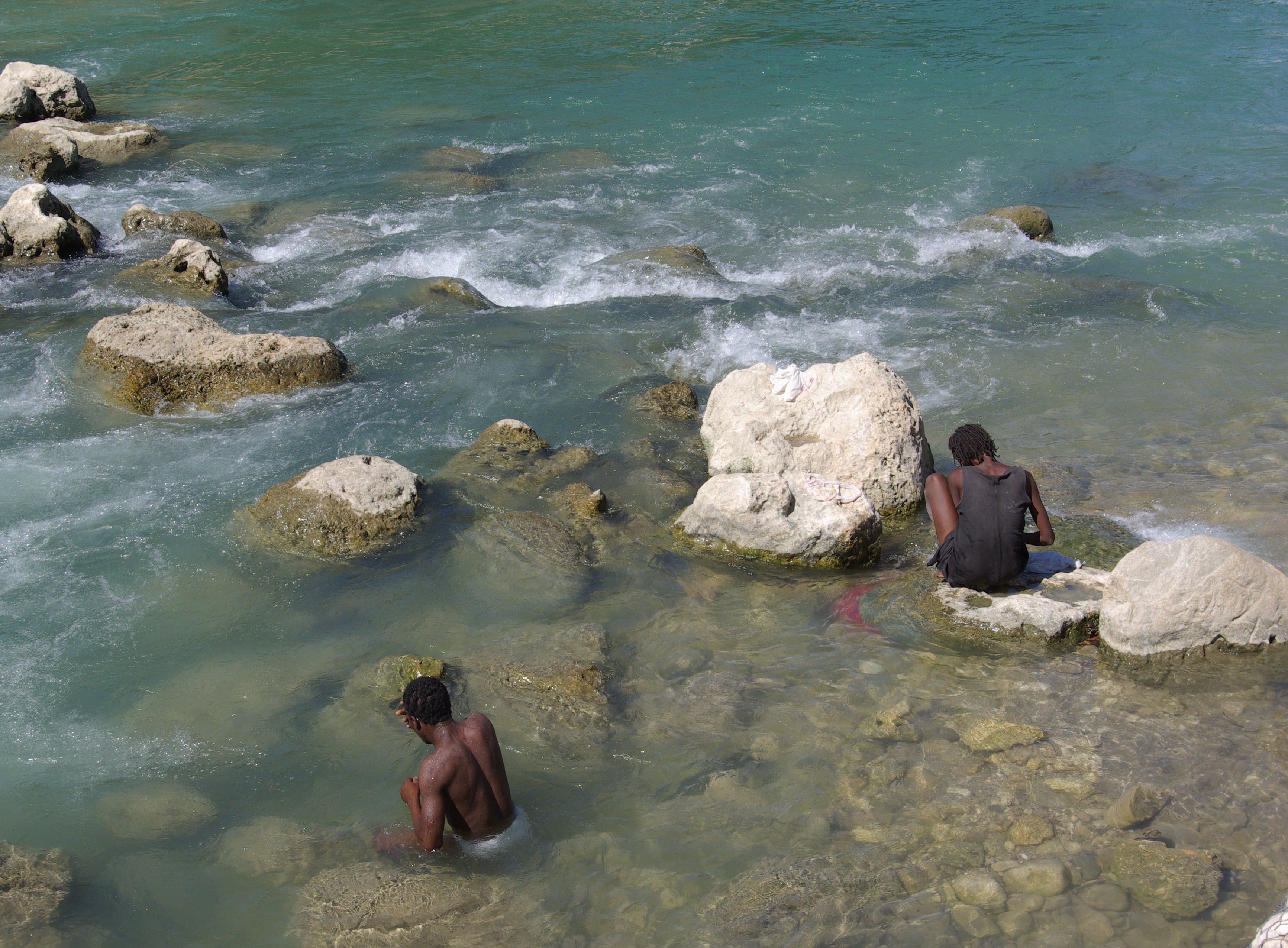But these vital tools for fighting the infectious bacterial disease - which by 3 November had killed at least 442 people in Haiti and infected more than 6,742 - are absent in most communities, such as the village of Deslandes in the Petite Rivière d’Artibonite District.
Here, there is one well for 600 people that rarely functions, the village has no toilets and reaching the nearest health centre requires crossing a river. Most people use the River Artibonite - thought to be the source of the epidemic - as their primary source of drinking, bathing and laundry water.
“Everyone uses the river,” resident Melinda Sineas told IRIN. “But the river is dangerous now.”
It has been decades since Haiti last saw cholera, but with the country’s abysmal water and sanitation conditions diarrhoeal disease is common.
“The lack of water and sanitation infrastructure in Haiti made it very difficult to imagine we would not have a major diarrhoea outbreak as a consequence of the earthquake,” said Joia Mukherjee, chief medical officer with Partners in Health (PIH), a Boston-based NGO which has worked in Haiti for over 20 years.
| More on Haiti |
Open defecation
Rural areas like Deslandes are badly off as well. Open defecation is the rule - a practice that is all the more dangerous when cholera is present. Less than 40 percent of Haitians have access to toilets, according to UNICEF-Haiti.
“When people get sick they relieve themselves in the woods like all of us,” Deslandes resident Ovid Floville, 50, told IRIN. “[Once they are too weak] and cannot stand any more, they stay at home and their whole body gets covered in diarrhoea.”
He said people scrub their homes with river water. NGOs have brought bleach and other supplies to nearby villages but Deslandes is isolated and access difficult, noted local pastor Solomon Tomas.
“People talk a lot about prevention,” PIH’s Mukherjee told IRIN. “But you have prevention [messages] against a backdrop of extreme privation. It is tough for people to avail themselves of the tools to prevent infection.”
Still, even in the absence of a sound water and sanitation system, some interim measures make a significant difference, she said. “There are things you can do in the absence of proper infrastructure [that will be effective] - for example, handing out soap, handing out water purification tablets. It does not completely prevent the problem but it is still worth doing these things.”
Medical care a boat ride away
If prevention is difficult in places like Deslandes, so is treatment. While some 80 percent of cholera cases can be successfully treated with oral rehydration salts, if they are not on hand one must get to a health post.
"There is a health centre in [the town of] La Chapelle but it can't deal with the number of people who are sick," the pastor said. "It can take two or three hours to get to the hospital."
|
Photo: Allyn Gaestel/IRIN  |
| Many Haitians have a long trek to reach a health centre |
It was midnight and Lorine and his son first had to wake the man who transports people across the river. After the canoe journey, Lorine - still vomiting - got a ride on a motorcycle to the hospital in the nearest city, Mirebalais.
“I couldn’t handle it but I had to go on,” he told IRIN.
After treatment Lorine was sent home from hospital with two gallons of purified water. When he runs out he plans to go back for more. If the hospital stops giving out water, the small-scale farmer is committed to finding it himself.
“I don’t have the means to buy water, but I will have to find a way. I never want to drink river water again.”
In cholera-endemic areas, such as in Asia and sub-Saharan Africa, people can be carriers and not fall ill, Mukherjee said. “Here in Haiti [where diarrhoeal disease is common], you’re adding a new strain amid an already weak - I won’t even say ‘system’ - a complete lack of infrastructure.”
PIH and three other institutions in 2008 published a report about the widespread lack of access to clean water in Haiti. This lack, the report said, “ranks as one of Haiti’s most significant obstacles when it comes to meeting basic human rights standards. Historical legacies of inequality, disempowered or corrupt governance, and persistent levels of extreme poverty have all contributed to the Haitian government’s systemic inability to deliver clean water to its people.”
Mukherjee said developing a water and sanitation system must be the job of government. Since the January 2010 earthquake PIH has been wary about how little funding the government has received, she said. “The infrastructure cannot be done by an NGO. It’s important to assist the government in getting some of the resources coming in - that’s critical.”
ag/np/cb
This article was produced by IRIN News while it was part of the United Nations Office for the Coordination of Humanitarian Affairs. Please send queries on copyright or liability to the UN. For more information: https://shop.un.org/rights-permissions





